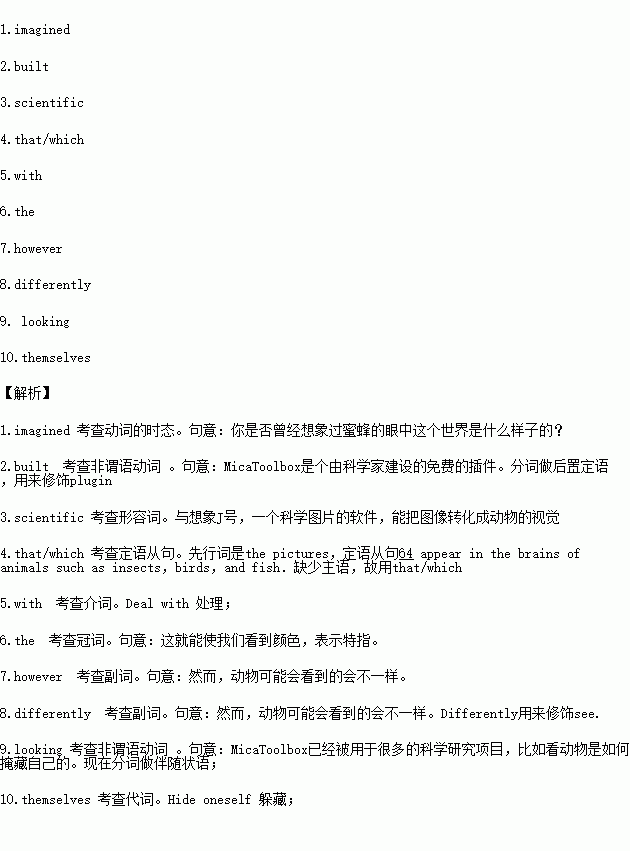题目内容
阅读下面材料,在空白处填入适当的内容(1个单词)或括号内单词的正确形式。
Have you ever 1. (imagine)what the world looks like through the eyes of a bee? You can try it out with the MicaToolbox.
The MicaToolbox is a free plugin(插件) 2. (build)by scientists at the University of Exeter in Britain.Together with Image J,a popular piece of software for 3. (science)pictures,it can turn many image into animal vision.This means people can check out the pictures 4. appear in the brains of animals such as insects,birds,and fish.
The way we see our world depends on how our eyes deal 5. light.Human eyes have three types of photoreceptors(感光细胞),and this makes us see 6. colors of red,green,and blue.Animals,7. ,might see it 8. (different).A cat’s vision is similar to a human who is color blind,while bees can see ultraviolet(紫外线)light,easily finding patterns on flowers that show them the way to honey.
As of now,the MicaToolbox has already been used in many research projects,9. (look)at,for example,how animals hide 10. (they)You can download the software from researcher Jolyon Troscianko’s website http:// www.jolyon.co.uk/myresearch/image—analysis/image—analusis—tools.
 阅读快车系列答案
阅读快车系列答案
